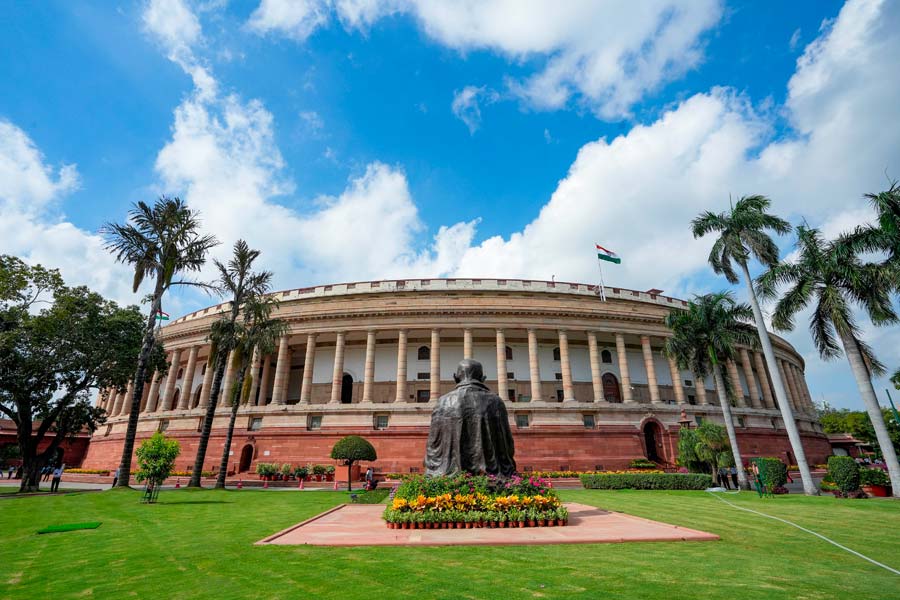A parliamentary committee has urged the Department of Water Resources, River Development and Ganga Rejuvenation to play role of an "honest broker" in resolving the contentious issue of ITO Barrage here by pro-actively engaging all stakeholders.
In view of huge flooding in Delhi in July 2023, the Standing Committee on Water Resources in its 27th report "Review of Upper Yamuna River Cleaning Projects up to Delhi and River Bed Management in Delhi" said that in August it undertook a field visit to the ITO Barrage for an inspection of its role and working in flood management in the city.
The panel was apprised that the Yamuna Barrage near ITO, Delhi across river Yamuna was constructed by the Haryana Irrigation Department during 1966-67 for the then Delhi Electric Supply Undertaking (DESU) for meeting cooling water requirement of Indraprastha Power Station and Rajghat Power House of Delhi Thermal Power Control Board (DTPCB).
After construction of the barrage, its operation and maintenance were assigned to Haryana Irrigation Department, the committee said in its report.
Indraprastha Power Station was decommissioned on December 31, 2009 and Rajghat Power House was also made non-operational in May 2015.
"Since, this Barrage 87 was constructed to supply cooling water for the thermal power houses therefore, this barrage has no role in flood management in Delhi," the committee said.
The function of the barrage is not for regulation of flood water. Further, the committee noted that the team of experts from CWC visited the Barrage in July 27 last year.
"During the visit, it was observed that on that day some of the gates were in fully closed position/partially opened position. The main cause of non-functioning of these gates is heavy silting in and around the gates and poor maintenance of hydro-mechanical equipment. Rope connection to the gate or counter in some bays was detached," the panel said in its report.
In this regard, the committee noted the submission of Haryana, according to which, the only reason of non-maintenance/over hauling of gates is attributed to failure of IPGCL authorities to provide maintenance and operation cost apart from capital investment as per requirement.
"On the other hand, Delhi government believes that they have technical capability to operate and maintain ITO Barrage at present and can operate it in a better way as per requirement during the flood in Delhi territory," the panel said.
However, in this regard, the Haryana government is referring to a decision taken in a meeting of 2015 wherein it was decided that supplies available at the barrage be considered for further distribution among Uttar Pradesh Haryana and Rajasthan at Okhla.
"Hence, it is not feasible for Haryana to transfer the control of the barrage to Delhi," the committee said in its report.
It further noted that a committee under the Chairmanship of Central Water Commission has been constituted by the Department of Water Resources, River Development and Ganga Rejuvenation for joint flood management study of river Yamuna, for its stretch between Hathnikund and Okhla Barrage.
One of the scopes of the study is to review the utility of ITO barrage in present context, it said.
The committee stressed that this issue needs to be sorted out as early as possible for ensuring the safe operation of the barrage so that Delhi does not again become a victim of floodings as witnessed in the month of July 2023.
"The committee urge upon the Department of Water Resources, River Development and Ganga Rejuvenation to mediate in the matter and play the role of an honest broker in resolving this contentious issue between the concerned State Governments by pro-actively engaging all stakeholders," it said in the report.
It also suggested that Bathymetric survey of Yamuna should be carried out once in five years or within a specified time period so that concern of silting of river bed could be addressed and clinical dredging could be done to accommodate the probable flood coming in the river.
Except for the headline, this story has not been edited by The Telegraph Online staff and has been published from a syndicated feed.

